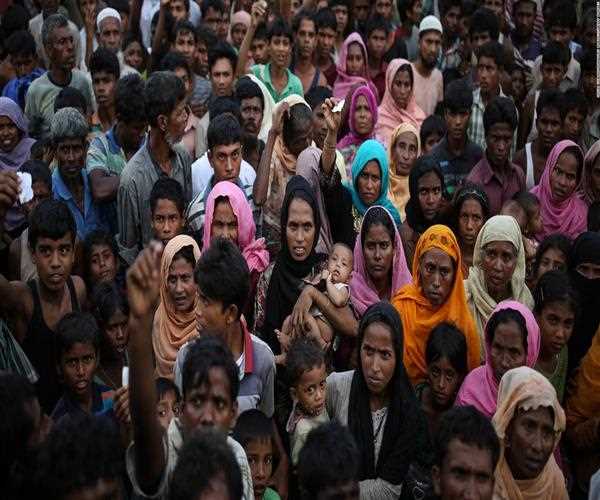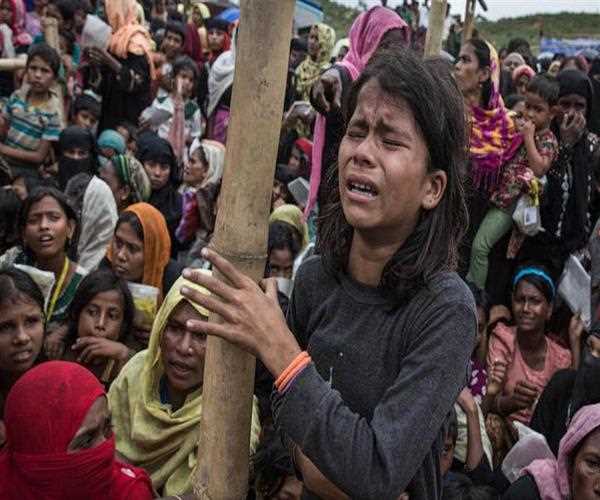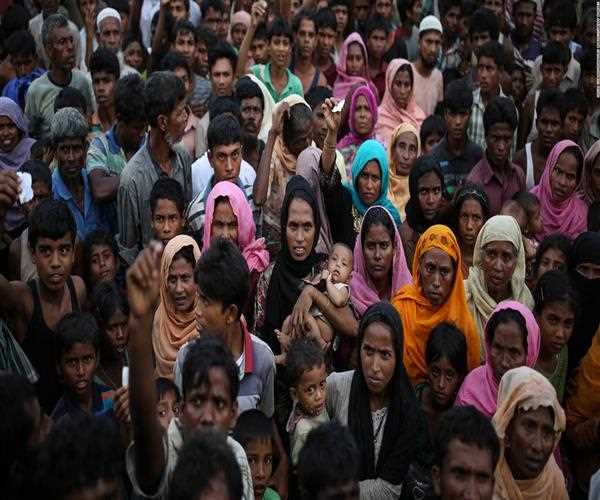
19-Feb-2022
India calls Rohingya refugees 'threat to national security'
The Indian government on Thursday told the Supreme Court that Rohingya refugees were 'a threat to national security', pushing back against condemnation of its plans to deport them. India’s top court is hearing a challenge to Prime Minister Narendra Modi’s government’s decision to deport Rohingya Muslims, filed by two Rohingyas living in Delhi who fled their village in Myanmar’s western Rakhine State about six years ago.
The decision to deport Rohingyas comes as Myanmar’s military crackdown in Rakhine has forced hundreds of thousands of Rohingyas to seek shelter in Bangladesh, in a process the U.N. has described as ethnic cleansing.
Myanmar says its forces are carrying out their legitimate duty to restore order after guerrilla attacks on Aug. 25 on security posts and an army camp in which about a dozen people were killed.
Close to 40,000 Rohingya Muslims live in India after fleeing Myanmar over the past decade. Nearly 15,000 have received refugee documentation, according to the United Nations, but India wants to deport them all. Rohingyas are denied citizenship in Buddhist-majority Myanmar and regarded as illegal immigrants, despite claiming roots that date back centuries.
Some groups allied to Modi’s Bharatiya Janata Party have stepped up calls for Rohingyas to leave, and Modi said last week that India shared Myanmar’s concerns about “extremist violence” in Rakhine state.

On Thursday, a senior lawyer representing India’s government told the supreme court that “the state considers that Rohingyas are a threat to national security.”
Intelligence agencies suspect that Rohingya Muslim leaders in India are in touch with Pakistan-based militant groups, the lawyer said.
India has been making its decision vary precisely about the various advantages and disadvantages of these refugees which is eventually summing up to the fact that their existence in India can in near future mishap the freedom or security services. “Foreign nationals who enter into the country without valid travel documents or whose travel documents expire while staying in India are treated as illegal migrants and are dealt as per the existing legal provisions,” the minister said.
India is not a signatory to the 1951 UN Convention relating to the status of refugees and the 1967 protocol thereon. All foreign nationals (including refuge seekers) are governed by the provisions contained in The Foreigners Act, 1946, The Registration of Foreigners Act, 1939, The Passport (Entry into India) Act, 1920 and The Citizenship Act, 1955, and rules and orders made thereunder. Foreign nationals who enter into the country without valid travel documents or whose travel documents expire while staying in India are treated as illegal migrants and are dealt as per the existing legal provisions,” said Rai

Rohingyas for years are nationless ethnicity and have been called by UN as ‘among the world’s least wanted’. There are around 2 million Rohingyas around the world – 1.3 million and 400k of them being in Bangladesh and Myanmar respectively – hovering amidst the uncertainty of their citizenship. Myanmar, after August 25, 2017, started a brutal crackdown of the Rohingyas in their traditional backyard of the Rakhine state after a terrorist attack on police forces by a radical militant wing of the Rohingyas – the Arakan Rohingya Salvation Army (ARSA). The crackdown resulted in the migration of more than 7,00,000 Rohingyas into neighboring Bangladesh and India. The Rohingyas were subjected to ‘genocidal’ crimes, in words of UN. The crisis was termed as ‘textbook example of ethnic cleansing’.
The Rohingya crisis, for entire 2017 and 2018, had captured the global limelight and dominated international coverages. Termed as ‘crime against humanity,’ the issue stained Myanmar’s relations with the world. Intellectuals from every corner started schooling Myanmar government on morality and humanity. The world had its guns – of various forms depending on gunner – pointed at Myanmar’s head for pushing ‘innocent’, as they say, Rohingyas into crisis. UN held that Myanmar military must be tried for crimes committed against Rohingyas. Canada ripped Aung San Suu Kyi of her honorary Canadian citizenship. Just months ago, US sanctioned or banned Myanmar’s military general. Collateral reputation damage reached even India and the UN, global human rights organizations and international media asked India to accept Rohingyas into its fold as refugees. And when India decided to deport 40,000 illegal Rohingyas to Bangladesh, the world got rattled and started bibbing their bits of moral superiority from the chalices of criticism. The Rohingya Muslims who have fled to India to escape widespread and systematic violence and discrimination in Myanmar also face a threat from a new source' India’s government'.
The Indian authorities have ordered so as to deport the Rohingya Muslims back to their state(MYANMAR). They do not officially recognize them as refugees . “we don’t want India to become a refugee capital” is one of the sayings of an official.

Student
Seeking an opportunity to establish a certified career in agriculture marketing sector as being a keen and organized person believing in team work, utilizing my knowledge as it serves a natural interest to give spark to innovative ideas.
Join Our Newsletter
Subscribe to our newsletter to receive emails about new views posts, releases and updates.
Copyright 2010 - 2026 MindStick Software Pvt. Ltd. All Rights Reserved Privacy Policy | Terms & Conditions | Cookie Policy